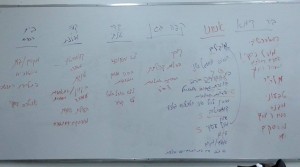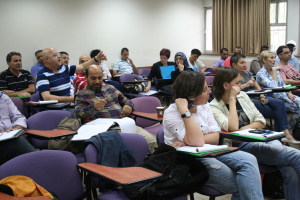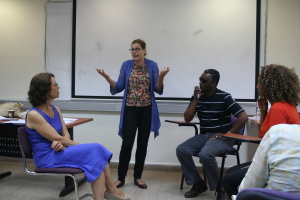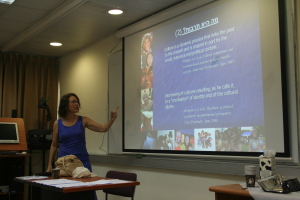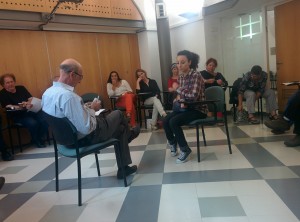Toward a Cooperative Community Café on the Jerusalem Railway Park
How do you want to see your green open spaces? That was the question we raised when we first began working with residents from neighborhoods that line the Jerusalem Railway Park about eight months ago, at the beginning of March, thanks to the support of the UJA-Federation of New York. Using Open Space Technology, a number of initiatives were raised, which we continue to follow up on today.
One of the initiatives that has gained momentum has been a Cooperative Community Café . A Community Café would be planned and operated by residents, for residents, and residents will make all the decisions – regarding what kind of food / drink will be served and at what prices, when it will operate, and what kind of activities will take place there. The goal of the Community Café is to create an informal meeting point for residents in a pleasant and casual atmosphere. All proceeds from the sale of food and drink will be dedicated to the operation and development of the Café, and not for profits.
On September 28 we held a meeting for the leading team that seeks to establish the Community Café in the Jerusalem Railway Park. The goal was to review a number of different models from around Jerusalem and other cities in Israel, and determine what is best of the Railway Park. Below is the comparison of the different characteristics of the various models.
We distributed a number of tasks among team members before the next meeting, including finding an appropriate name. Any suggestions?

